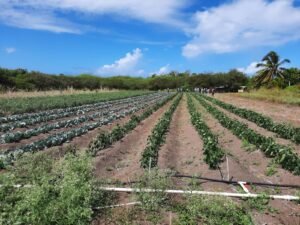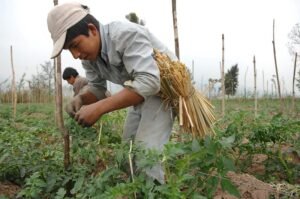Agricultural Education in France. France, with its deep-rooted agricultural history and position as one of Europe’s largest agricultural producers, has a well-established system of agricultural education. This education extends from secondary schools to postgraduate research institutions, preparing students for careers in various sectors of the agricultural industry. This article delves into the structure, institutions, curriculum, challenges, and prospects of agricultural education in France.
Agricultural Education in France
1. Historical Overview
Agriculture has been central to France’s culture, economy, and identity for centuries. The development of agricultural education can be traced back to the late 19th and early 20th centuries when the importance of formal agricultural training became evident due to the scientific advancements in the field.
2. Structure of Agricultural Education
French agricultural education follows a structured system:
- Secondary Education: Technological agricultural baccalaureate programs are available in high schools, offering foundational knowledge in agricultural sciences.
- Higher Education: Institutions offer diploma, degree, and doctorate programs in diverse fields of agriculture.
- Specialized Institutes: These provide training in specific areas such as viticulture, agribusiness, and agronomic research.

3. Key Institutions
France is home to several prestigious agricultural institutions:
- AgroParisTech: One of the premier institutions in Europe for agricultural sciences, food technology, and environmental studies.
- National Institute for Agricultural Research (INRAE): The largest agricultural research institution in Europe, playing a pivotal role in research and development.
- AgroCampus Ouest: Offers a range of programs in life sciences, food technology, and horticulture.
4. Curriculum and Training
The curriculum in agricultural education institutes encompasses various facets:
- Technical Skills: Students learn about soil science, plant biology, animal husbandry, agricultural machinery, and crop production.
- Business Skills: Modules in agribusiness, supply chain management, and rural development prepare students for the business side of agriculture.
- Research: Higher education emphasizes research methodologies, equipping students to contribute to innovation in the sector.
- Internships: Practical exposure through internships and fieldwork is an integral part of the education.

5. Challenges Faced
While France’s agricultural education is robust, it faces challenges:
- Keeping Pace with Technology: Agriculture is rapidly evolving with the advent of technologies like AI, drones, and precision farming. Integrating these into the curriculum is vital.
- Sustainability: As global concerns about sustainability grow, it’s imperative that agricultural education imparts sustainable and eco-friendly farming practices.
- Internationalization: With the globalized nature of the agriculture sector, students need exposure to international markets and practices.
6. Future Prospects
The future of agricultural education in France looks promising:
- Research and Development: France continues to lead in agricultural R&D, ensuring its educational institutions remain at the forefront of innovation.
- Emphasis on Organic Farming: Given the global trend towards organic produce, there’s a growing emphasis on organic farming in the curriculum.
- Digital Agriculture: With the digital transformation of agriculture, institutions are increasingly incorporating subjects like data analytics, remote sensing, and digital farm management.

7. Conclusion
Agricultural education in France, rooted in the nation’s rich farming heritage, has evolved to meet the contemporary needs of the sector. By combining traditional knowledge with modern science and technology, it aims to produce graduates who can lead the agricultural industry into a sustainable and prosperous future. Challenges do exist, but with continuous updates to the curriculum and an emphasis on research and innovation, French agricultural education remains among the best in the world.
